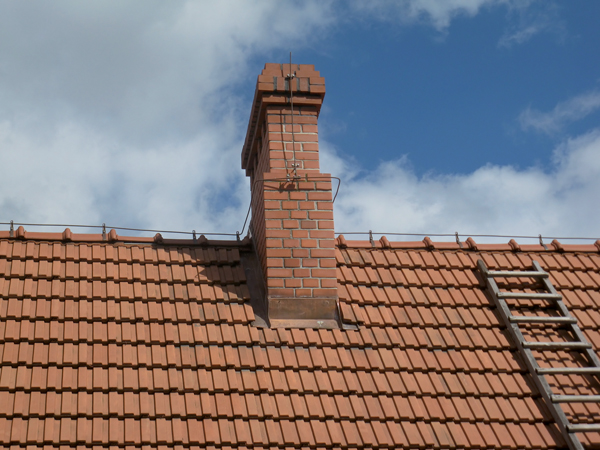DIFFERENT TYPES OF CHIMNEYS
The main function of any chimney is to vent smoke and flue gases from a fireplace, furnace, stove or a boi-ler directly into the atmosphere outside. Nevertheless, in order to perform its function effectively, the chimney should suit well the specific appliance and the fuels it uses.
Nowadays, there are two main kinds of chimneys on the market to choose from, masonry and factory–built ones. The former, made of bricks or stone, undoubtedly incorporate traditional beauty. They are also the most versatile of all and best serve stoves and gas fires. Brick, having already been fired, can withstand intense heat much better than other materials. One must remember, however, that masonry chimneys require flues or vertical openings that control airflow to the fire.
The factory-built chimneys, usually found in modern homes, are made of stainless steel, are insulated, and are generally quite varied by the way of construction. The metal insulation traps heat better, as well as allows air to circulate in the chimney.

© rparys – Fotolia.com
INSPECTION AND CLEANING OF CHIMNEYS
No matter what kind of chimney you choose, you should inspect and clean it each year. Not only does it restore the function of your chimney, but it also makes you and your home safe. Otherwise, you are at risk of being poisoned by carbon mono-xide fumes. What is more, corroded chimneys can lead to a chimney fire which can destroy your house.
Creosote and soot, the natural byproducts of burning fuel that are present in the form of a highly flammable black layer on the inside of a chimney, need to be regularly cleaned. It may be done either with the use of brushes, or with the help of chimney sweeps who will turn the creosote buildup into an easily removed powdery substance.
One should also beware of another harmful byproduct of burning fuel, namely carbon monoxide. Exposure to even low levels of this colorless, odorless gas may cause serious illnesses or death. To avoid that danger, it is better to install carbon monoxide detectors on each floor of your house as well as have the chimney annually inspected by professionals.
Magdalena Marcinkowska
GLOSSARY:
chimney – komin
to conjure up – przywoływać
to stuff down – przeciskać się
industrial – przemysłowy
billows of smoke – kłęby dymu
charm – urok
to vent – wypuszczać
flue gases – gazy spalinowe
fireplace – kominek
furnace – piec
boiler – kocioł
to suit – odpowiadać
appliance – urządzenie
fuel – paliwo
masonry chimney – komin murowany
factory-built chimney – komin systemowy
versatile – uniwersalny
to withstand – wytrzymywać, znosić
flue – przewód (kominowy)
stainless steel – stal nierdzewna
to trap – zatrzymywać
carbon monoxide poisoning – zaczadzenie, zatrucie tlenkiem węgla
to lead to – prowadzić do, spowodować
soot – sadza
byproduct – produkt uboczny
highly flammable – łatwopalny
chimney sweep – kominiarz
buildup – nagromadzenie
to beware – uważać na
odorless – bezwonny




